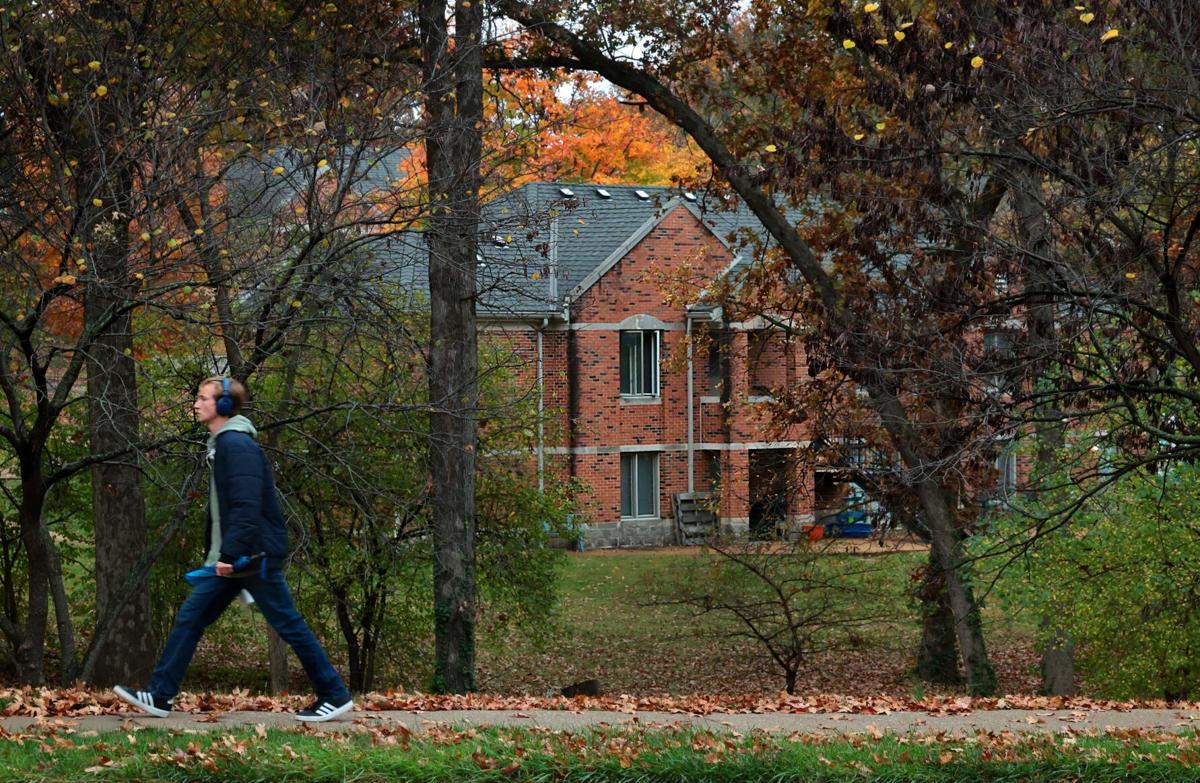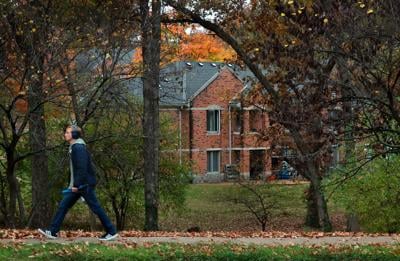CLAYTON — Opposition to Washington University’s plan to build athletic fields near homes on Big Bend Boulevard has helped sparked an alderman’s write-in campaign for mayor in the April 8 election.
Third-term Alderwoman Bridget McAndrew, the only candidate whose name will appear on the ballot, says her seven years in office give her the on-the-job experience needed to lead the city. An attorney in private practice, she is the longest-serving alderman on the six-member board.
But Alderman Rick Hummell, elected in 2023, is asking voters to write in his name instead. A former banking and finance executive, Hummell says his financial acumen is needed as the city tries to boost revenues.
The base of his support, however, can be found along Big Bend, where yard signs asking voters to “Write in Rick Hummell” line the road and fan out along side streets. Residents say Hummell backed them against Washington U.’s proposal when most other officials let them down.
People are also reading…
“He was a supporter for us, he listened to us and stood up to the aldermen for us, which is what we elect someone to do,” Angela Liebermann said.
The election in Clayton, whose downtown serves as the county seat and is a premier business district, will bring a new mayor for the first time in six years. Mayor Michelle Harris, first elected in 2019, is term-limited.
Neither candidate has pointed to the Washington University proposal as a key driver in the election. But Hummell supporters say it made a difference.
Last year, the university proposed relocating softball and baseball fields to 27 acres on the western end of Concordia Seminary, along Big Bend. The athletic fields would replace the seminary’s student housing, which Concordia planned to move east, toward its chapel. Residents raised concerns about traffic, noise and a lack of transparency from Washington U.
Clayton officials, noting they were limited in telling private landowners what to do, created a unique zoning, called an overlay district, to put in a series of restrictions. The restrictions included limits on the number of venues and capacity and requirements for larger buffer zones and more tree canopy. Harris at the time said the project was “the most outreach” the city had done on a single issue.
Opponents said the city didn’t go far enough. Some called on aldermen to block the project. Others wanted Clayton to require the university to submit detailed plans for approval of conditional use permits. Hummell argued the city shouldn’t change anything until Washington University submitted plans.
“There are so many unknowns involved with this at this point, and here we are sitting around the table essentially trying to develop a site plan for the developer,” he said at a meeting on Nov. 26. “I don’t think that’s our role.”
Hummell, whose ward includes parts of Washington U. and neighborhoods east of Big Bend, was the only alderman at the meeting to vote against the overlay district. The rest of the board said an overlay was the best chance to control the project. But before a final vote in January, the university withdrew its plan.
Hummell supporters say his stance stood out to them.
“We felt like the city was tailoring the zoning to the needs of Wash. U. and patting themselves on the back for getting this bureaucratic, technical process done — until it got to Rick,” said Dimitri Sideriadis, who lives off Big Bend. “It was like, finally, someone is hearing us.”
Hummell said he didn’t initially plan to run for mayor because he heard an ex-alderman intended to campaign for the position. The ex-alderman, however, decided against a run. By the time residents urged Hummell to run, he said, the filing deadline had passed and he had to opt for a write-in candidacy.
McAndrew, in an interview, said the controversy with Washington University showed a need for “better communication” between the university and residents.
But local cities have lost lawsuits brought by developers challenging restrictions on private development. A special overlay zone had a better chance of addressing residents’ concerns, she said.
Susan Forsyth, a McAndrew supporter who lives north of downtown Clayton, said she opposed the plan and appreciated Hummell’s stance. But that was only one issue; McAndrew has helped her ward several times over the years, Forsyth said.
McAndrew holds regular coffee meetings to hear from residents, helped get a commercial building to tone down its bright lights and has even stopped by Forsyth’s home at night to keep her updated her on city issues.
“She has always been available and very supportive,” Forsyth said.
Boosting revenue base
Aside from the ball fields issue, both candidates say they want to grow Clayton’s revenue base to keep up with rising costs.
After a slump in office activity during the COVID pandemic, city officials welcomed projects for new high-rise apartments, shops and nightlife. The city in 2023 shifted costs for trash pickup to residents for the first time to plug a budget gap. And it’s now asking voters on April 8 to approve an additional quarter-cent sales tax to fund fire and emergency medical services.
Meanwhile, the newer downtown development prompted criticism the city was losing its unique character. Residents of historic neighborhoods worry about new construction changing the look and feel of their streets. They are also wary of Washington University’s growing footprint, as the school in recent years has acquired homes, the former Christian Brothers College campus and the Fontbonne University campus.
McAndrew and Hummell both support the fire and EMS tax, and both say they would look to fill vacant storefronts and explore partnerships with neighboring municipalities to lower costs. And both candidates say they would keep development in line with the city’s recently completed master plan. They also pledge to represent residents’ concerns in talks with developers and institutions, including Washington University.
McAndrew, whose ward includes part of downtown and adjacent residential neighborhoods, has pointed to her broad experience in the city, including membership on multiple city commissions and the steering committees for Clayton’s comprehensive plan and the school district’s facilities master plan. In addition, endorsements from school board members and former mayors show they trust her, she said.
“My perspective and the experience that I’ve had for the last seven years puts me in a great position to lead,” she said.
Hummell said his skills from a career in community banking and commercial lending are more relevant to the city’s needs. A longtime member of the city’s economic development advisory committee and an elected school board member from 2003 to 2006, he says he can pair his business experience with his community involvement to find new solutions for Clayton.
“I have the relevant experience and leadership that could address the challenges that we have right now,” Hummell said.
Fans of the St. Louis Cardinals gathered in downtown as rain began to fall before the team's first game of the season on March 27, 2025. Video by Allie Schallert, aschallert@post-dispatch.com














